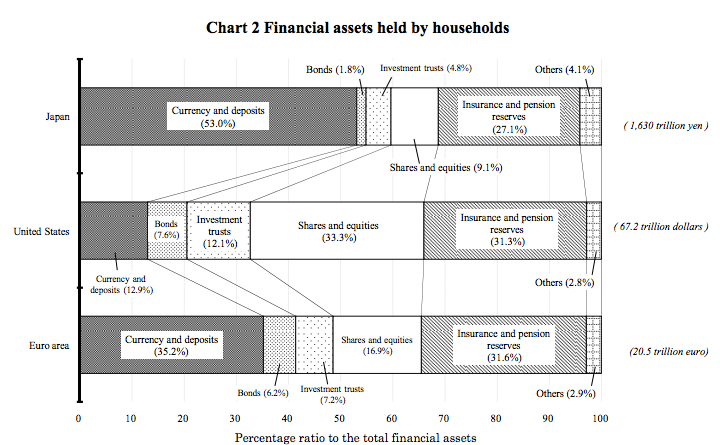Whenever a company’s management team says that something is going on in its industry that is “not fully understood by the investment community” it’s usually something worth paying attention to. Last week Larry Fink at BlackRock (NYSE:BLK) had something very interesting to say about mutual-fund adoption in European financial markets:
“Let me add one other thing, Luke, which I think is not fully understood by the investment community, and that is the substantial growth in mutual fund sales in Europe. As you know, banks continue to deleverage, more and more activities are going onto the capital markets, greater confidence in Europe and the Europe’s future with a huge amount of savings in Europe. And so we’re seeing much greater penetration across the board in European retail.”
A Significant Shift
Fink’s statement is important because it suggests that, partially as a result of the European sovereign debt “crisis,” European households are increasingly allocating savings into mutual funds and therefore securities markets. This could portend a significant shift in Europe’s banking structure that has already taken place in the US.
Over the last several decades, U.S. banks have become “disintermediated”, which means that U.S. households hold less of their savings at commercial banks as deposits and more of their savings in capital markets as common stock, bond and fund holdings.
It's Different In The U.S.
The chart below from the Bank of Japan illustrates that U.S. financial structure is much different than the rest of the world. While U.S. households only hold 13% of their financial assets as deposits, Europeans still hold 35% and Japanese citizens hold 53%.
When banks become disintermediated, capital markets have more power to impact consumer spending. If households are holding more of their savings in the stock market, then they will immediately see the impact of rising or falling share prices on their wealth. In contrast, if you hold more of your savings as deposits, you’re more insulated from market movements because deposits do not rise and fall in value with share prices. Because of this, disintermediation is a double edged sword. It’s great when markets are rising, but not so wonderful when markets are falling.
One of the reasons that the U.S. financial crisis could have such a significant effect on household spending is that households saw a first-hand effect of a market crash. However, many European citizens probably felt very little direct effect on their savings from capital market fluctuations during the European sovereign debt uproar.
I’ve heard Bernanke say before that one of the things he learned in the financial crisis was that he had underestimated the impact that the stock market could have on the real economy. Disintermediation is probably a major reason why he underestimated that. A lot of economic theory has been developed for a bank centric world, but with disintermediation, a bank centric focus is incomplete.

